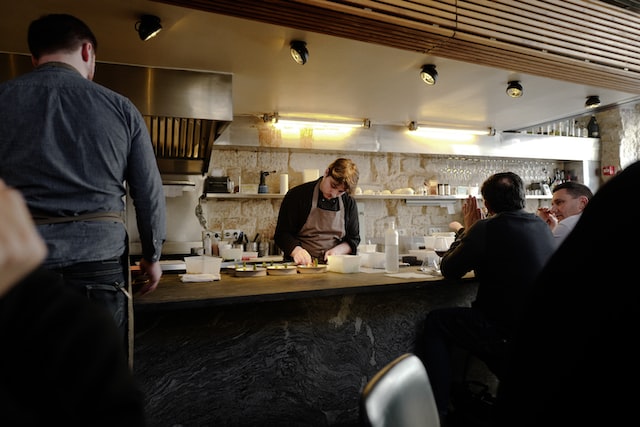Below we have discussed ten such businesses that were positively and negatively impacted by Covid 19 pandemic.
The Covid 19 has had a detrimental impact on businesses across the globe, but the damage has not been distributed evenly. The coronavirus had a positive impact on very few companies. Specific businesses have suffered more than others. The pandemic touched many businesses, although certain firms and sectors were hit more than others.
Many businesses, such as food and delivery services, have invented workarounds like cloud kitchens and window shopping. On the other hand, from food service to Airlines, some of the world’s largest businesses have been devastated by losses as public safety measures designed to curb the spread of the virus have also slashed firm income.
Here is a list of some businesses that have been positively and negatively impacted by COVID-19.

Also Read: 15 Most Viewed YouTube Videos Worldwide In 2022
Businesses positively impacted by Covid 19
1# Healthcare
During the Covid 19 pandemic, hospitals saw a rapid increase in the number of patients, and it not only burdened the hospital staff but also caused a surge in the need for essential medical supplies. Hence, it led to the flourishing of the essential medical equipment industry. Apart from medical equipment, the demand for implementing information technology to modernize patient care has increased more than ever.
This has resulted in the birth of IT startups with a motive to supply technology to hospitals and healthcare institutions.
2# Remote working tools and software
Due to the lockdowns imposed by the governments, organizations were instructed to work from home. To collaborate remotely and improve the level of productivity, they had to implement several remote working apps and software. As a result, the workplace communication platforms such as Zoom, Microsoft Teams, and Slack gained millions of users within a week.
Realizing the importance of remote communication software for a virtual office, several new platforms also emerged to deliver remote collaboration capabilities during this period.
3# Manufacturing
The manufacturing sector is also the one to benefit from the sudden increase in demands for essential products facing a shortage of supplies. The manufacturing units which could be easily modified on short notice were the ones to make the fullest of the opportunity of shortage of vital supplies. For instance, perfume production companies are now manufacturing hand sanitizers on a large scale.

Local manufacturing companies, particularly the ones producing cleaning products are also thriving on the account of readily delivering the products.
4# Entertainment Platforms
This one should not be surprising, as the lockdown, travel restrictions, and quarantine have created the perfect atmosphere for the entertainment industry to flourish and reach new heights of success. Travel bans have forced and social distancing has forced the people to find new methods of entertainment, and online streaming platforms were the perfect antidotes for this crisis. Not only did new streaming platforms emerge, but they also began streaming web series, movies, games, and sports as the movie theaters were shut down for the general public.
Apart from the online streaming platforms, there was also a leap in the number of viewers watching traditional TV programs. There was a sharp rise in the downloads of streaming apps, notably Netflix in the areas highly impacted by pandemics.
Also Read: 20 Most Awaited Shopping Trends For August 2022
5# Online Learning Platforms
Indeed the Education sector suffered a massive blow when the schools closed down, but this also give a boost to the online education system. Schools and colleges adopted the online system of education and enrollments increased on the online learning platforms.
The online mode of learning was so well received by scholars and schools, that it is now accepted as an active mode of teaching in the school curriculum. The online education sector will surely grow in the upcoming years.
6# Electronics and IT services
With the sudden outburst of the pandemic, all the organizations and businesses had to adopt remote work culture, which led to the sudden increase in the demand for IT solutions. Organizations had to upgrade their security system to prevent cyber attacks on their workforce to avoid theft of sensitive data.
Work from home also causes a sudden spike in the demands for computer hardware and peripherals such as laptops and smartphones, data servers, mouse, broadband, and more. Furthermore, the companies producing office desks and chairs also witnessed a boost in their sales.

7# Virtual Reality (VR)
Virtual Reality already had a promising future ahead, but COViD gave it the right push as people were looking for new means of entertainment that could improve their leisurely life.
VR was also adopted by other industries to provide virtual tours of museums, places of art and culture as well as those of historic importance. Real estate sectors also leveraged VR to supervise the construction sites, buildings, mines, power plants, and others. VR headsets like Oculus Quest, PlayStation VR, and HTC Vive were already receiving their share of attention.
8# Delivery services and Logistics
Even though supply chains received a massive blow due to a shortage of production, logistics and delivery services were largely in demand. People unable to leave their houses relied on delivery services to get food, medicines, and other essentials delivered to their doorsteps. Moreover, the pandemic strengthened the logistics services when companies took essential steps to improve supply chains, warehouses, and logistics.
Delivery persons were hailed as the heroes who played a pivotal role to curb the widespread pandemic by ensuring social distancing and less crowding in the supermarkets.
Also Read: Top 8 New Technology Inventions Of 2022
9# Groceries and beverages
The consumption of food items and beverages was at its peak during the lockdown period, and empty shelves and low stocks were utter proof of it. Skyrocketing sales of alcohol were recorded during this period to be consumed during self-isolation. Similarly, there was a sudden outburst in the demand for groceries which accelerated their production. Warehouses and factories had to hire new staff to meet the demands during this time.
10# E-Commerce
Lastly, E-Commerce was one such business sector that not only benefitted during the Covid era but also saw an increase in sales as an after regime. People were dependent on e-commerce to shop online for products and attire this led to a build-up of trust and more and more people were drawn to the e-Commerce sector.

Businesses negatively impacted by covid 19
1# Airlines
While airlines gradually increased their revenue margins, the deadlier Covid-19 wave brought the situation into turmoil. During the initial wave of the pandemic, aviation faced significant challenges. According to CNBC, American Airlines stock fell 45% in 2020, while Delta fell 31% and United fell 51%. According to reports, plane traffic decreased by 50% in the first wave of the pandemic. People were scared to depart from their homes, so the bigger aviation industry suffered.
2# Restaurants
The restaurant industry has been among the most harshly influenced by Covid 19. According to a Statista report, the restaurant industry lost nearly $130 billion of its income between March and October 2020 because of shelter-in-place orders. This resulted in the loss of 2.1 million employees and the closure of an estimated 110,000 restaurants permanently.

Also Read: A Detailed Guide To Facebook Metaverse
3# Personal Care and Beauty
According to California’s Legislative Analyst’s Office, the pandemic hugely impacted the salons and beauty parlors. Because these industries involve interactions that cannot be socially isolated or performed inside. The hairstylists, barbers, nail salon employees, and massage therapists were usually paid minimum wage or less, making it difficult for them to get substantial employment benefits.
4# Sports and Performing Arts
According to Business Insider, the performing arts and sports lost 45.4% of their jobs between February and April 2020 as public safety limitations impacted sports arenas, theatres, orchestra halls, and other concert venues.
- Disney and Universal Studios closed numerous theme parks because huge crowds could transmit the coronavirus.
- Arsenal Football Club also placed its players in self-isolation and postponed the match against Manchester City owing to coronavirus.
- Indian movie theatres are temporarily closed because of the COVID-19 outbreak.
5# Retail
The larger box retailers have the biggest financial cushion to recover, but many smaller firms suffered losses that may be more difficult to recover from. To meet consumer expectations and create money, stores have had to rearrange processes to accommodate internet shopping, contactless payments, and curbside pickup.

6# Real Estate and Construction sector
During the second wave, the real estate and construction sectors started to experience disruption as many migrant workers fled urban regions. The number was bigger because many workers returned to their hometowns every day.
The labor shortage hampered both housing and construction projects in metropolitan regions. Construction sites were functioning at around half-strength in such a setting. Not only was there a lack of labor, but there were also material shortages due to the restrictions.
7# Financial Technology
The COVID-19 spread has been identified as the greatest threat to the world economy and financial systems. Looking at the short-term impact, we saw people making safer market investments. Fewer stock market investments negatively influenced VC funding for existing and emerging fintech startups.
Transactions in the Fintech sector decreased at all levels. People spent less than usual since they self-isolated to protect themselves from the COVID-19 outbreak, resulting in a low transaction rate. Indeed, cryptocurrencies such as Bitcoin and Ethereum have significantly hit due to the coronavirus effect.
Also Read: 15 Best Shows Like Stranger Things You Must Watch
8# Fitness
COVID-19 significantly influenced fitness centers and gyms, which formerly relied on in-person subscriptions to generate revenue. During the pandemic, many reputed fitness centers and gyms declared bankruptcy due to negative financial flow. Some reinvented themselves with online classes and, later, outdoor classes when things improved, but the future of gyms remains uncertain. People increasingly spend money on home gym equipment, Peloton bikes, and other personal fitness solutions to work out from home.

9# Tourism Sector
After the first wave, the tourist and travel industry began to recover, but little did they know that Covid 19 would return for the second round of devastation. The second wave of limitations decimated the tourism sector, which was already battling to recover from the initial losses experienced by enterprises in 2020. Many smaller businesses could not reopen their doors when the second wave passed. As a result, household incomes were expected to suffer as unemployment rose.
10# Movie Theaters
The movie theatre experience was like a dinosaur on the verge of extinction due to the coronavirus. Many movie theatres in the United States had to remain closed for a major portion of the epidemic due to lockdowns and safety restrictions. Even after the reopening of the theatres by the end of 2020, theatres and cinema halls recorded a huge drop in attendance compared to the same period in the previous year.

































